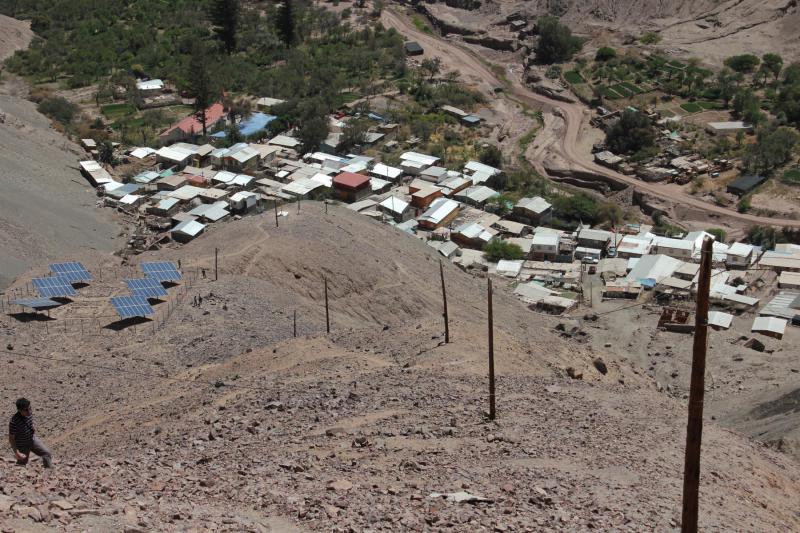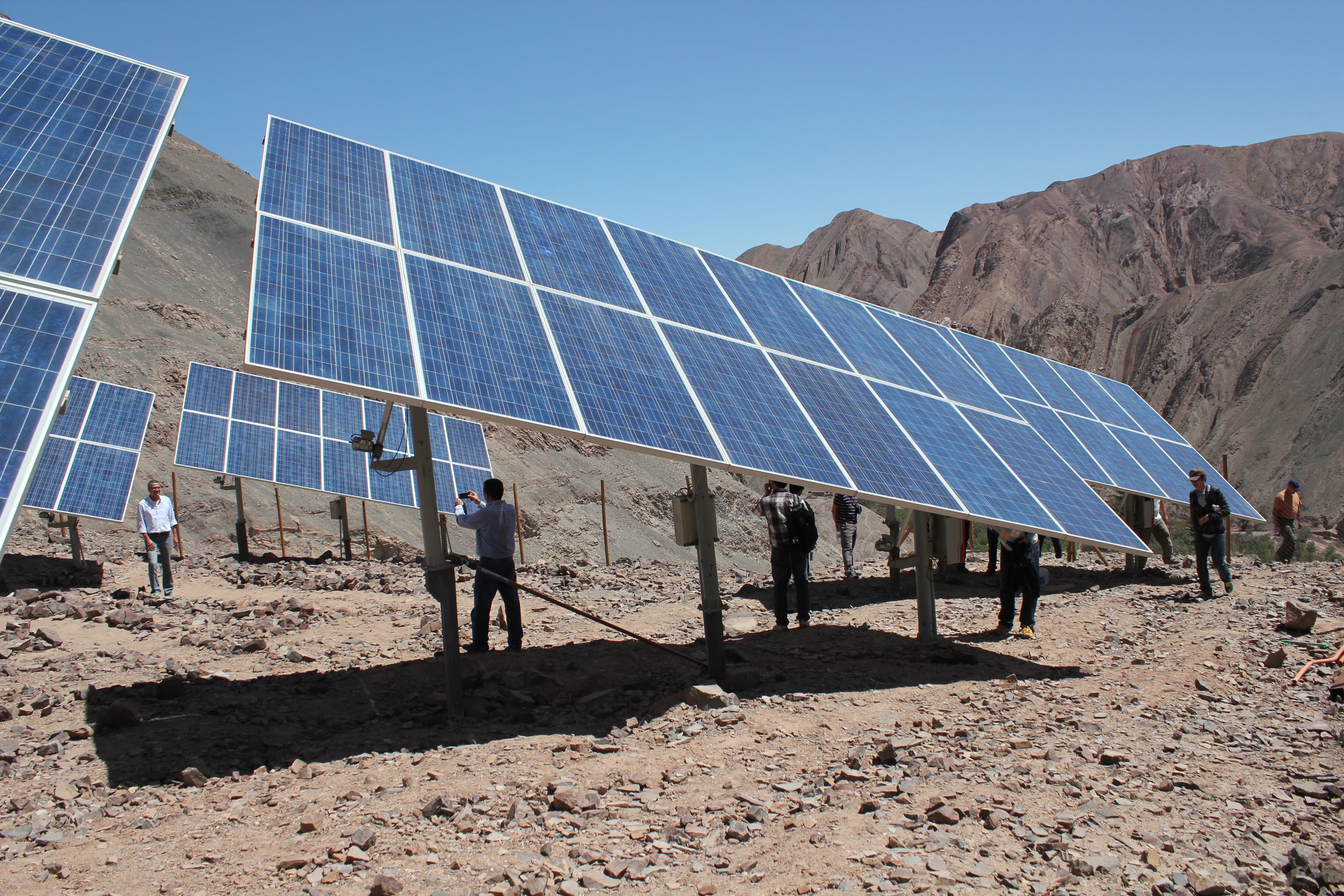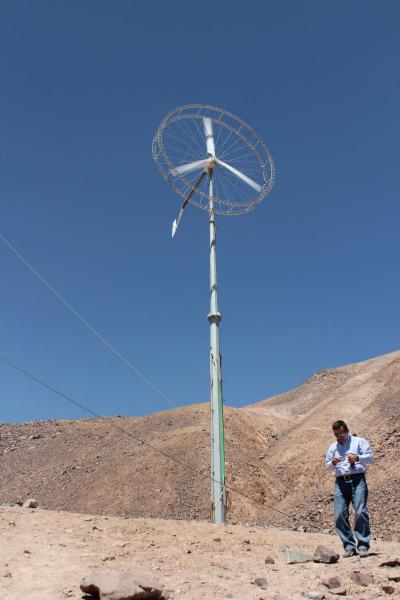


The University of Chile has developed Chile’s first microgrid project in a remote Andes Mountains community of 150 residents (mostly miners and their families) called Huatacondo. Prior to the microgrid installation, the community had its own electric network (operating independently from the macro-grid) operating 10 hours per day with power provided from a single diesel generator. The vision of the microgrid was to continue using that diesel generator but supplement it with distributed energy resources, namely solar PV, wind, and a battery system.
The microgrid includes a 150 kW diesel generator, 22 kW tracking solar PV system, a 3 kW wind turbine, a 170 kWh battery, and an energy management system. The energy management system provides online set‐points for generation units while minimizing operating costs, taking into account renewable resource forecast, load, solar tracking, and water consumption.
The typical Supervisory Control and Data Acquisition (SCADA) approach for system operators has technical interfaces for gathering and analyzing real time data to inform plant control decisions.
The Huatacondo project sought to create a “Social-SCADA” approach, to easily present information to users with no technical background to help assist the community members with decision making surrounding the electricity system. With the Social SCADA system in place, the community will be able to participate actively in the decision making and maintenance of the system, and thus the initial project support team (from University of Chile) can confidently hand over the project’s ownership and management to the community.
The project has had some impressive results so far. The consumption of diesel has fallen by 50%, and the solar PV system has achieved a capacity factor of 28%. The project will continue to be an interesting case study in remote microgrids as the community takes ownership of the operation and maintenance of the system.

